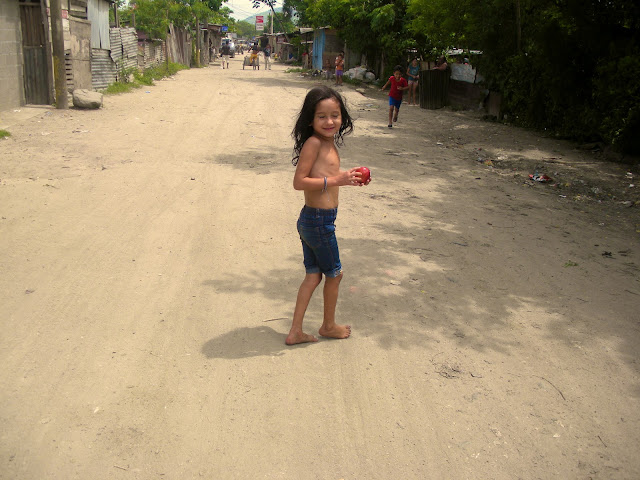Wikipedia tells us (so you can be damn sure it's true!) that the term "third-world" was created during the cold war to classify countries not aligned with capitalism or NATO.
Somehow, someway, in the interim it has taken on a more pejorative, distasteful connotation beyond simply describing a developing nation. Be honest ... what do
you think of when you hear the term?
Sure, we can rank countries by NASDAQ Index, GDP, poverty levels, drug addiction, murders, or how many people are left handed or can touch their nose with their tongue for that matter. Any quantitative data will do. But by ranking something third when there are only three categories, there is the impression that a terminal, hopeless situation exists.
(And for the record, similarly, if I ever hear someone call something "classy", my inner dialogue is already asking whether said thing is 1st, 2nd, 3rd, 4th, or 5th class. This applies to the self-conscious Canadian habit of labeling Canadian things "world-class". Stop it. Just know yourself that it is good, ok?)
I love spending time in places such as Cuba, Honduras, Costa Rica, and the like - places that richer nations typically rank 3rd out of 3. One of the best reasons is that it multiplies my level of appreciation for my life in Canada and the astronomical riches that my middle class life brings. Middle class riches that a lot of folks here cannot even begin to imagine let alone aspire to.
But a better reason is because I am reminded far more often of the things that Canada's progression into a 1st-world country has left behind. What can Canadians, myself included, learn from Honduras?
Family values
Typically, Sunday is family day in Honduras. Many I have spoken to give me a puzzled look when I ask if they plan anything else on Sundays instead of packing up the family and going to their parents' house. What is the retirement plan of the elderly? It's that the kids will provide. Shove them in an old folks' home? Not on your life.
 Food
Food
Maybe the selection is more limited here than back home, but maybe our selection back home is too large. Foods are eaten in-season here. (admission: the growing season is 365 days long) Fruits and vegetables are picked ripe and served ripe, right away. If it wasn't frowned upon in the hotel's La Posada Restaurante, I'd take my shirt off to eat my breakfast papaya and pineapple they're so damn soft, juicy and sweet. Mostly things are farmed on small landholdings with more manure and less chemicals. My first inspection of the refrigerators of the Copantl Hotel had me drooling as I saw box after box of produce that, in the rare case they didn't say Honduras on them, said Nicaragua, Guatemala, El Salvador, or Costa Rica. All are within several hours of Honduras by road. Everything shipped ripe. Nothing shipped green and underdeveloped.
The Grin Factor
My research is loose and subjective on this one, but Hondurans smile more. (and Cubans smile more than
anyone) Why? I think it's less stress, more family, and a less-fiercely competitive social environment. Are they less competitive and ambitious than Canadians? Perhaps, that's not for me to say. But even if they are, isn't smiling a damned good measure of a life in the process of being well-lived?
MacGyverism
If something breaks in Honduras, they do like we do in Canada - they replace it. The difference is that the replacement here is the repaired original item. The Copantl has a small, nearby 'boneyard' of furniture, kitchen equipment, and odds and ends from the hotel that no longer function. A handful of tradesmen bring these things back to life and bring them back into the hotel instead of consuming a new replacement product. Yesterday I had a discussion with Executive Chef Wilmer while standing over a busted-down, ancient convection oven that looked ready for the crusher. He's going to turn it into a banquet warming oven or possibly a smoker. Hondurans are famous for this resourcefulness. They have to be.
So let's stop ranking countries with the derogatory term "3rd-world". We do them a disservice, and we do even less for their self-esteem. The terms "better" and "worse" are opinions, nothing more or less, and we each have one of those. Life is far more qualitative than quantitative. This goes for calling richer nations 1st-world too. I'm told many Hondurans have been moving back from the United States of late due to life being too tough there.
Maybe I'll start my own index called the Papaya Index. While of course I am looking forward to being back in my home and native land in a couple of weeks, I'm not looking forward to being back in a Papaya Index 3rd-world country.







































.JPG)




